Máıre
Aoıfe Comerford (1893 - 1982)
Irish Republican, Member of
Cumann na mBan and Sinn Fein, Free State POW, Journalist and
Author
------------------------------
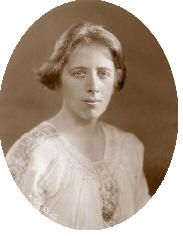 A
remarkable woman who was both a participant in and witness to Irish
Republican history from 1916 to her death in 1982. Remarkable also
in that she remained faithful throughout her life to the 1916
Proclamation of the Irish Republic. The promise of that
Proclamation, a sovereign Irish Republic founded on the principles
of inclusiveness and equality was what she fought for during the
revolutionary years (1916 - 1923) and throughout her life.
continue
A
remarkable woman who was both a participant in and witness to Irish
Republican history from 1916 to her death in 1982. Remarkable also
in that she remained faithful throughout her life to the 1916
Proclamation of the Irish Republic. The promise of that
Proclamation, a sovereign Irish Republic founded on the principles
of inclusiveness and equality was what she fought for during the
revolutionary years (1916 - 1923) and throughout her life.
continue
Ruairí Ó Brádaigh 1932 - 2013
 Ruairi was a
towering figure of Irish Republicanism in
the latter half of the 20th century. He came
to embody the very essence of the Republican
tradition, setting the very highest
standards of commitment, duty, honor and
loyalty to the cause of Irish freedom.
Ruairi was a
towering figure of Irish Republicanism in
the latter half of the 20th century. He came
to embody the very essence of the Republican
tradition, setting the very highest
standards of commitment, duty, honor and
loyalty to the cause of Irish freedom.
continue
Edward J.
Mitchell (1849 - 1923
 Edward
J Mitchell was born on July 10, 1849 in Rutland, VT
and his family moved to Yonkers,
NY when he was six years old. From an Irish Catholic
family he was educated in Yonkers parochial schools
and worked in his early teens in the Eagle Hat
factory.
Edward
J Mitchell was born on July 10, 1849 in Rutland, VT
and his family moved to Yonkers,
NY when he was six years old. From an Irish Catholic
family he was educated in Yonkers parochial schools
and worked in his early teens in the Eagle Hat
factory.
continue
Thomas Henry Hassett (1841-1893)
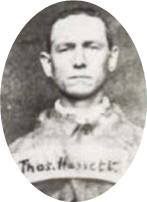 Thomas Hassett was born in Doneraile,
County Cork. Little is known of his early life, but we can safely
assume he saw firsthand the evictions and state-imposed starvation
in the “Famine” years. He was a carpenter by trade. He joined the
Young Irelanders’ Phoenix Literary Society in 1859 and left Ireland
to serve in the Irish Papal Brigade in 1860; he was wounded at the
Battle of Perugia. Upon returning, he joined the British Army in
1861 and was sworn into the Irish Republican Brotherhood in 1864.
Thomas Hassett was born in Doneraile,
County Cork. Little is known of his early life, but we can safely
assume he saw firsthand the evictions and state-imposed starvation
in the “Famine” years. He was a carpenter by trade. He joined the
Young Irelanders’ Phoenix Literary Society in 1859 and left Ireland
to serve in the Irish Papal Brigade in 1860; he was wounded at the
Battle of Perugia. Upon returning, he joined the British Army in
1861 and was sworn into the Irish Republican Brotherhood in 1864.
continue
Brigadier General Stephen Moylan (1734 - 1811)
Irish-born American patriot, Aide-de-Camp to
General Washington,
Muster-Master General and
Quartermaster General
of the Continental Army
and Commander of the Cavalry of the
Continental Army.
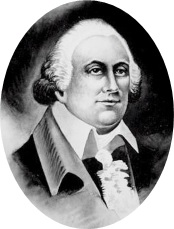 Stephen
Moylan was born in Cork City, Co. Cork, Ireland in
1734, the first of four children born to John Moylan
and his first wife Mary Ann Doran. John Moylan had
four other children with his second wife, Alicia
Joyce.
Stephen
Moylan was born in Cork City, Co. Cork, Ireland in
1734, the first of four children born to John Moylan
and his first wife Mary Ann Doran. John Moylan had
four other children with his second wife, Alicia
Joyce.
The
Moylan's were prosperous merchants as were the
Doran's. Under normal circumstances that would have
afforded their children access to the best schools
in Ireland except for the fact that the British
backed Penal Laws enacted by the parliament of the
Protestant Ascendency in Ireland barred Catholics
from participation in all aspects of civil life
including education.
continue
Paddy Landers (1881 - 1944)
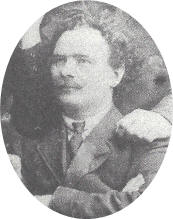 On an autumn day in 1924, the platform at Listowel's
railway station was crowded by those who wished to bid
farewell to yet another departing emigrant. There were
no bands or banners, no speeches or dignitaries, but
still they came to wish Paddy Landers well as he boarded
a train to leave Listowel on his journey to Boston.
Throughout the previous decade he had been a hero on the
football field, in the council chamber, in prison cells
and on the field of battle. A journalist who was present
on that railway platform wrote that two years
previously, 'any position that he wished for could be
his, but still Paddy Landers, true to his position as a
soldier and as a man preferred to become a "Soldier of
the Rear Guard". Now, as he boarded the train, the price
of defeat in the Civil War was to be paid in full.
On an autumn day in 1924, the platform at Listowel's
railway station was crowded by those who wished to bid
farewell to yet another departing emigrant. There were
no bands or banners, no speeches or dignitaries, but
still they came to wish Paddy Landers well as he boarded
a train to leave Listowel on his journey to Boston.
Throughout the previous decade he had been a hero on the
football field, in the council chamber, in prison cells
and on the field of battle. A journalist who was present
on that railway platform wrote that two years
previously, 'any position that he wished for could be
his, but still Paddy Landers, true to his position as a
soldier and as a man preferred to become a "Soldier of
the Rear Guard". Now, as he boarded the train, the price
of defeat in the Civil War was to be paid in full.
continue
Mary Harris "Mother" Jones (1837 - 1930)
Labor Activist and Organizer, Speaker, Teacher
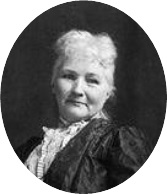 Mary
Harris Jones, an unremarkable Irish
emigrant to America in the early 1840s, nonetheless
went on to leave her footprint in the
history of the American labor movement and, also in
the history of the Irish-American diaspora.
Mary
Harris Jones, an unremarkable Irish
emigrant to America in the early 1840s, nonetheless
went on to leave her footprint in the
history of the American labor movement and, also in
the history of the Irish-American diaspora.
She was once
described as the most dangerous woman in America by
a member of the economic elite for her advocacy of
economic justice for the working class. She was also mocked as the "grandmother of all agitators" on the
floor of the U.S. Senate, a characterization she
wholeheartedly agree with.
She helped shape a spirit
of disobedience in the cause of justice, the type of
disobedience that the late U.S. congressman John
Lewis would refer to as "good trouble". She was, and
still is, a role model for women crusaders for
social justice, gender equality, femicide and a slew
of other injustices levied at women around the
world. ---
continue
Ella Young (1867 - 1956)
Irish Literary Revivalist, Irish Republican,
Teacher, Poet, Writer and Mystic.
 Ella
Young was born on December 25, 1867, in Fenagh, Co.
Antrim, Ireland to James Bristow Young, a corn
broker, and Matilda Ann Russell Young, She was
the oldest of six children, five girls and one
boy. Although the Young's were middle class
Presbyterians, they were not members of the
ruling Protestant Ascendency, a predatory
institution consisting solely of members of the
Established Protestant Churches of England and
Ireland. Presbyterians were not trusted by the
British or their vassals in Ireland,
consequently they were also victims of the Penal
Laws, albeit, to a lesser extent than the native
Irish.
Ella
Young was born on December 25, 1867, in Fenagh, Co.
Antrim, Ireland to James Bristow Young, a corn
broker, and Matilda Ann Russell Young, She was
the oldest of six children, five girls and one
boy. Although the Young's were middle class
Presbyterians, they were not members of the
ruling Protestant Ascendency, a predatory
institution consisting solely of members of the
Established Protestant Churches of England and
Ireland. Presbyterians were not trusted by the
British or their vassals in Ireland,
consequently they were also victims of the Penal
Laws, albeit, to a lesser extent than the native
Irish.
continue
Dr. Gertrude B.
Kelly (1862-1934)
Surgeon, Irish Republican, Suffragette, Writer,
Social Activist and Philanthropist

Gertrude Brice Kelly was one of twelve children born to Jeremiah and
Kate Kelly (nee Forrest) near Carrick-on-Suir, Co. Waterford on February
10, 1862, Both of Gertrude's parents were teachers who, according to
some accounts, were supporters of the Irish Republican Brotherhood
(IRB), a movement dedicated to overthrowing British rule in Ireland.
Possible because of Jeremiah support for or involvement in the IRB, he
left Ireland for the United States in 1868 taking up residence in
Hoboken, New Jersey. His family joined him there in 1873. After
settling in Hoboken, Jeremiah secured a teaching position in the public
school system where Gertrude and her siblings received their education.
Eventually, Jeremiah became superintendent of Hoboken's school system.
Continue
Marguerite Moore
(1846 - 1933)
Irish Land League activist and prisoner, Writer,
Orator,
Social Activist and Suffragette
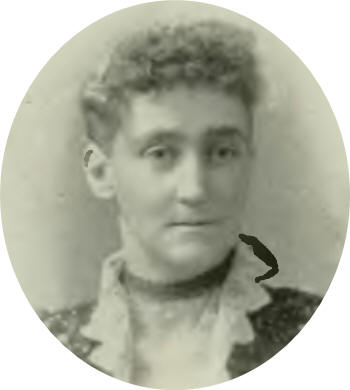 Early
Years.
Early
Years.
Marguerite Nagle, the oldest of two daughters, was born to Garret and
Mary Jane Nagle on July 7, 1848, in Waterford City, Ireland during the
height of the Great Hunger.
Her father, who managed the local Post Office and rented property in the
city, died in 1849 during her infancy. Her mother, Mary Jane died a few
years later in 1852.
As a beneficiary in their wills, Marguerite inherited £250 equivalent
to £31,000 today when she came of legal age in 1869.
The Great Hunger (1845 - 1851) was a calamitous event in the annals of
Irish history. Despite the death or flight of over 2.5 million victims
of starvation, not every native Irish family went hungry however, the
attendant diseases reached far beyond the starving masses to add to the
overall carnage. It's not known if Garret or Mary Jane fell victim
to any of these diseases that continued to plagued Ireland long after
the Great Hunger.
continue
Edward FitzGerald (1763 - 1798)
Irish Revolutionary, 1798 Irish Rebellion
Martyr, United Irish Army Commander-in-Chief,
British Army Officer, American Revolutionary War
Participant, Honorary Iroquois Chieftain
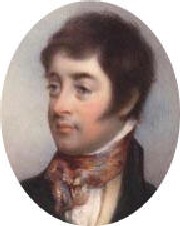 What
was remarkable about Edward FitzGerald, a scion
of nobility, was his transformation from a
defender of absolutism to a martyr of liberty.
His journey from a life of opulence to a hideout
in Thomas Street in Dublin was adventurous,
transformational and tragically fateful—a unique
journey for a unique man. His life will be
remembered for the days he shared with his
countrymen and women in their struggle for
liberty and for his profound and fearless
embrace of their revolution. ---
continue
What
was remarkable about Edward FitzGerald, a scion
of nobility, was his transformation from a
defender of absolutism to a martyr of liberty.
His journey from a life of opulence to a hideout
in Thomas Street in Dublin was adventurous,
transformational and tragically fateful—a unique
journey for a unique man. His life will be
remembered for the days he shared with his
countrymen and women in their struggle for
liberty and for his profound and fearless
embrace of their revolution. ---
continue
Linda Kearns 1888 - 1951)
Irish Republican Nurse, Easter Rising Participant, Prisoner of War,
Participant in the Irish War of Independence, and
Treaty War aka Civil War.
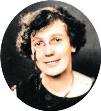 Gifted
with intelligence, motivation, courage and a sense of self-worth, Linda
found expression for her unique qualities in Ireland’s quest to reclaim
its cultural heritage and rights to nationhood at the turn of the 20th
century. A nurse by profession she served humanity in times of war
and peace. A soldier by happenstance, she braved the inherent
dangers and fears to serve her homeland unreservedly. As a
prisoner-of-war she suffered through extreme interrogations and inhuman
prison conditions. Undaunted, she escaped her colonial captors to
continue her quest for the Irish Republic she embraced, and for which
her friend Thomas MacDonagh and his comrades in arms gave their lives.
Gifted
with intelligence, motivation, courage and a sense of self-worth, Linda
found expression for her unique qualities in Ireland’s quest to reclaim
its cultural heritage and rights to nationhood at the turn of the 20th
century. A nurse by profession she served humanity in times of war
and peace. A soldier by happenstance, she braved the inherent
dangers and fears to serve her homeland unreservedly. As a
prisoner-of-war she suffered through extreme interrogations and inhuman
prison conditions. Undaunted, she escaped her colonial captors to
continue her quest for the Irish Republic she embraced, and for which
her friend Thomas MacDonagh and his comrades in arms gave their lives.
continue
Commodore John Barry (1745 - 1803)
Officer of
the Continental Navy, Veteran of the Revolutionary War,
First Commissioned U.S. Naval Officer and
Father of the U.S. Navy
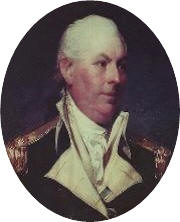
The son of an evicted peasant farmer in Ireland
by the henchmen of colonial Britain, Barry
survived to exact his vengeance in the American
colonies. His journey to revenge and fame
started as a cabin boy on a fishing boat and
ended as the
First Commissioned U.S. Naval Officer
of
the U.S. Navy. As captain of a number of
Continental Navy warships during the American
Revolutionary War, he exacted his revenge on
colonial Britain by capturing and sinking a
number of its warships. His exploits and those
of his fellow patriots freed the American
colonies from the scourge of colonialism and in
the words of
Thomas Francis Meagher
in his 1846 'On
Abhorring the Sword' speech, "a giant nation started from the
waters of the Atlantic, and by its redeeming
magic, and in the quivering of its crimson
light, the crippled colony sprang into the
attitude of a proud Republic—prosperous,
limitless, and invincible!"..
---
continue
Thomas Antisell (1817
- 1893)
Young Irelander,
Physician, Scientist, Professor, and Veteran of
the U.S. Civil War
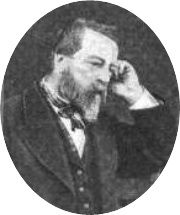 Thomas
Antisell joined the young Ireland movement in
the early 1840s. In so doing he opened a new
chapter in his life, a chapter that would
deprive Ireland of one of its greatest minds,
and award America with a worthy addition to its
trove of brilliant men. His contribution to
America's viability as a Republic during the
Civil War was absolute. His contribution in the
field of medicine and science greatly
contributed to America's leadership role in
scientific discoveries and innovations.
Thomas
Antisell joined the young Ireland movement in
the early 1840s. In so doing he opened a new
chapter in his life, a chapter that would
deprive Ireland of one of its greatest minds,
and award America with a worthy addition to its
trove of brilliant men. His contribution to
America's viability as a Republic during the
Civil War was absolute. His contribution in the
field of medicine and science greatly
contributed to America's leadership role in
scientific discoveries and innovations.
continue
Eamonn
Bulfin (1892 -
1968)
Argentine-born Irish Patriot, Veteran of the
1916 Easter Rising, Irish Republic
Representative to Argentina.
 Born
in Argentina did not diminish Eamonn's love for
Ireland, the birth land of his parents and
ancestors. On his family's return to Ireland in
1902, Eamonn was immediately embedded in the
cultural
nationalism movement taking hold in Ireland at
that time. By virtue of his enrollment in St.
Enda’s, the school founded and managed by
Padraic Pearse,
he became a committed Irish Republican who went
on to take part in the Easter Rising. He will be
forever remembered as the Volunteer lieutenant
who hoisted the green flag bearing the words
‘Irish Republic’ over the GPO at the onset of
the Rising on Monday, April 24, 1916.
Born
in Argentina did not diminish Eamonn's love for
Ireland, the birth land of his parents and
ancestors. On his family's return to Ireland in
1902, Eamonn was immediately embedded in the
cultural
nationalism movement taking hold in Ireland at
that time. By virtue of his enrollment in St.
Enda’s, the school founded and managed by
Padraic Pearse,
he became a committed Irish Republican who went
on to take part in the Easter Rising. He will be
forever remembered as the Volunteer lieutenant
who hoisted the green flag bearing the words
‘Irish Republic’ over the GPO at the onset of
the Rising on Monday, April 24, 1916.
Continue
Nora Brosnan (1905 - 1996)
Irish Republican,
Cumann na mBan, Free State
Prisoner of War.
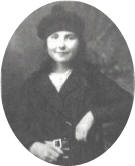 On
the evening of 22 November 1922, Captain Spillane watched the rowing
boats with Free State troops and their captives return to his vessel,
the Helga. The gunboat lay at anchor just off the sandy shore on the
western tide of Tralee Bay and he had steered her as near as the tide
allowed to the beach that lay a few hundred yards to the east of the
village of Castlegregory.
On
the evening of 22 November 1922, Captain Spillane watched the rowing
boats with Free State troops and their captives return to his vessel,
the Helga. The gunboat lay at anchor just off the sandy shore on the
western tide of Tralee Bay and he had steered her as near as the tide
allowed to the beach that lay a few hundred yards to the east of the
village of Castlegregory.
That morning he had brought a
detachment of Free State troops from Fenit who, landing in their rowing
boats, hoped to surprise the local Republicans in one of the few areas
that remained under their control. The Helga, originally designed as a
scientific research vessel, had been converted in 1914 to her present
status as a gunboat by the Royal Navy. Her guns pounded the Republican
positions in Dublin in 1916 and, over six years later, she was still
pursuing the same enemy, though under a different flag.
---
continue
Patrick Donohoe (1806 - 1854)
Young Irelander, "a Felon of Our Land," a Van Diemen’s Land Exile, a
Writer and Publisher and a Penal Colony Escapee.
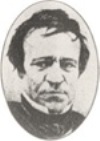 Under
normal circumstances Patrick Donohoe would have
led his life in relative obscurity despite
having participated in the 1848 Young Ireland
Rising. What changed that probability was a
meeting with the Rising's Confederate leadership
in Tipperary where he was sent to brief them of
the situation back in Dublin. That task,
together with his presence at subsequent
leadership meetings and his participation in an
attempt to start a Rising in Waterford with
Thomas Francis Meagher, sealed his fate. As a
consequence, he has the dubious honor of being
categorized as one of the seven Young Ireland
leaders exiled to Van Diemen's Land and
immortalized as a "Felon of our Land" alongside
the luminaries of the Young Ireland movement..
---
continue
Under
normal circumstances Patrick Donohoe would have
led his life in relative obscurity despite
having participated in the 1848 Young Ireland
Rising. What changed that probability was a
meeting with the Rising's Confederate leadership
in Tipperary where he was sent to brief them of
the situation back in Dublin. That task,
together with his presence at subsequent
leadership meetings and his participation in an
attempt to start a Rising in Waterford with
Thomas Francis Meagher, sealed his fate. As a
consequence, he has the dubious honor of being
categorized as one of the seven Young Ireland
leaders exiled to Van Diemen's Land and
immortalized as a "Felon of our Land" alongside
the luminaries of the Young Ireland movement..
---
continue
Constance Markievicz (1868 - 1927)
Irish
Revolutionary, Suffragette, Citizen Army
Soldier, Easter Rising Participant,
First Female elected to the Westminster
Parliament, and Labor Minister in the First Dail
Eireann.
 Constance
Markievicz was prominent amongst a number of
brave women born into British nobility who,
through their exposure to the abject poverty of
the native Irish under British colonial rule,
and the systemic destruction of their cultural
identity, became leaders in Ireland's struggle
for independence and for the preservation of its
unique cultural identity. Constance's commitment
to Ireland was total and uncompromising, a
commitment that led to vilification by her
former peers, a commuted death sentence, and
numerous terms of imprisonments. Her place in
modern Irish history is secure and beyond
reproach, and her exploits are immortalized
alongside those of Ireland's greatest heroes.
Constance
Markievicz was prominent amongst a number of
brave women born into British nobility who,
through their exposure to the abject poverty of
the native Irish under British colonial rule,
and the systemic destruction of their cultural
identity, became leaders in Ireland's struggle
for independence and for the preservation of its
unique cultural identity. Constance's commitment
to Ireland was total and uncompromising, a
commitment that led to vilification by her
former peers, a commuted death sentence, and
numerous terms of imprisonments. Her place in
modern Irish history is secure and beyond
reproach, and her exploits are immortalized
alongside those of Ireland's greatest heroes.
continue
Jerry O'Sullivan (1845 - 1922)
O'Sullivan was born in the parish of Caherdaniel in
south-west Kerry in 1845. His father was a national
schoolteacher, who had come from Valentia Island to
teach in a school opened by Daniel O'Connell, The
Liberator, on his estate at Caherdaniel for the
children of his tenants. Jerry O'Sullivan, as he was
known, received a good education and at the age of
sixteen travelled to London for employment, probably
in the civil service. His father may have been dead
at this stage as his mother lived with him in
London. It was in his adopted city that O'Sullivan
joined the IRB, and by 1867 he was the head of the
Fenian circle in the High Holborn and Clerkenwell
districts.
continue
Denis Duggan (1842 - 1884)
Fenian, Veteran of the Fenian Rising of 1867,
Member of James Stephens Prison Escape Squad, Member
of Clan na Gael, Member of the Catalpa Fenian
Prisoners Rescue Squad
 Denis Duggan was the
quintessential Fenian, resolute and fearless, and
most of all, dedicated to the cause of Irish
freedom, He
was a frontline foot soldier who participated in
three historic events including the rescue of James
Stephens from Richmond Jail in 1865, the
Fenian Rising in Dublin in 1867 and the rescue of
Irish-born British
soldiers, turned Fenians, from the Fremantle Prison
in Australia in 1875/6. Not one to seek
the limelight, he preferred to remain in the shadows
until called upon to undertake another mission.
Denis Duggan was the
quintessential Fenian, resolute and fearless, and
most of all, dedicated to the cause of Irish
freedom, He
was a frontline foot soldier who participated in
three historic events including the rescue of James
Stephens from Richmond Jail in 1865, the
Fenian Rising in Dublin in 1867 and the rescue of
Irish-born British
soldiers, turned Fenians, from the Fremantle Prison
in Australia in 1875/6. Not one to seek
the limelight, he preferred to remain in the shadows
until called upon to undertake another mission.
continue
Leonora O’Reilly (1870 - 1927)
Labor Leader, Trade Union Organizer,
Suffragette, Social and Political Activist.
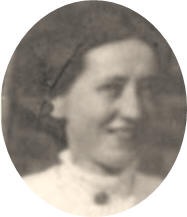 Leonora
O'Reilly epitomized the qualities that distinguished
the activist women of the gilded age. The child of
Irish refugees from the Great Hunger of the
mid-1800s, she became an agent of change for the
victims of capitalism and imperialism. Forced to
leave school at the age of 11 to work in the garment
industry, she chafed at the industry's inherent
inhumanity and the powerlessness of its female
workforce.
Through her innate
intelligence, self-education, oratorical skills,
and forged alliances, she became a renowned advocate
for the abolition of child labor, the rights of
working women,
women's
suffrage, racial equality, and the victims of
British imperialism in Ireland ---
continue
Leonora
O'Reilly epitomized the qualities that distinguished
the activist women of the gilded age. The child of
Irish refugees from the Great Hunger of the
mid-1800s, she became an agent of change for the
victims of capitalism and imperialism. Forced to
leave school at the age of 11 to work in the garment
industry, she chafed at the industry's inherent
inhumanity and the powerlessness of its female
workforce.
Through her innate
intelligence, self-education, oratorical skills,
and forged alliances, she became a renowned advocate
for the abolition of child labor, the rights of
working women,
women's
suffrage, racial equality, and the victims of
British imperialism in Ireland ---
continue